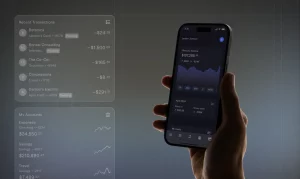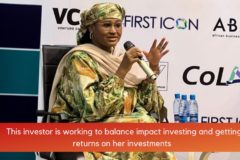Some founders want to shake off the gender identifiers and be called just “founders,” like men are. Gendered labels, such as “female founder,” “women in tech,” “female entrepreneur,” “woman scientist,” or “lady boss,” are very often used to celebrate the accomplishments of women in male-dominated spaces, such as the tech ecosystem. But to some women, these labels perpetuate the idea that women are exceptions to the norm, rather than equal participants in their professional fields.
Some of the founders who share this sentiment are shunning opportunities to be featured in stories that highlight only the achievements of women because they worry about being othered. Turning down my request to have her featured on a women-only list of founders, a founder rhetorically asked me, “How often do you see men being called male founders? How many lists of male founders have you written?” She refused to be featured in the story even after I explained that the story seeks to emphasise that, despite the challenges women face, such as the gender-funding gap and gender-based discrimination in workplaces, women are making significant accomplishments.
A number of women expressed fatigue from being approached by journalists to tell stories about their experiences as women in the male-dominated sector. But some women welcome it as it increases their visibility to investors and growth opportunities, especially those that are exclusive to women. Founder of Fashtracker, Wunmi Akinsola, told TechCabal that earlier on in her startup journey, she was apprehensive about the “female founder” label. “It took me failing to realise how skewed the system is against women and to embrace the valuable opportunities that are specially designed for women,” she said.
Taking off the gender lens
However, some feel shortchanged by these stories and say that they just want their work as operators in the space to be spotlighted without the gender lens. “These women-only stories make it seem like the accomplishments of women are anomalies rather than the norm, and thereby perpetuate the inequalities that they seek to undo,” a female founder told TechCabal in an email.
Some women also feel that gender-lens investments are only made because they are women and not based on the merit of their work. A media professional who has worked extensively with African female founders told TechCabal that “some feel like they are only helping the investors meet their diversity, equity, and inclusion (DEI) KPIs,” and that other commercial investors they meet down the line will assume the business is not commercially viable. “That is not how I want to be seen. I don’t want investors to see me as a woman, or invest in me because I am a woman. I want the quality of my work, the calibre of my skills, and the promise of my venture to be the benchmarks,” a founder told TechCabal in an interview.
But will changing our language to a more inclusive and gender-neutral one level the playing field? Melanie Okuneye, founder of the health startup, Akoma Health, doesn’t think so. “Investors and customers can see that we are female anyway! Female founders are unique in many ways, whether from the expectations placed on them or the challenges faced. So, I don’t see a problem with the title. I wear it with pride.” she told TechCabal. Olabinjo Adeniran, a marketing professional who co-founded and led growth at Future Africa, an African venture capital company, told TechCabal that even though Future Africa makes sure to invest in a particular percentage of women, he doesn’t recall any founders pitching themselves as “female founders.”
Many male professionals have acknowledged the existence of gender-based problems in the tech ecosystem, such as the gender funding gap, gender-based discrimination in the workplace, and gender-based harassment, and agree that intentional efforts should be made to address these issues. However, they agree that constantly noting gender when talking about women, even when the situation doesn’t require a gender basis for discussion, is not helping matters. “It can be annoying and alienating if people only ever refer to you as a woman founder instead of measuring or telling your story as a leader of a fast-growing company,” Binjo said in a chat with TechCabal.
While agreeing that the title can sometimes be reductive, Odun Eweniyi, founder of savings platform PiggyVest and women-focused VC firm FirstCheck Africa, says that the gender distinction is a reminder of the progress that needs to be made in the push for equal representation. “As there are still ‘first woman to’ achievements in tech, this distinction is necessary to serve as a call to action for others to take the leap and that it can be done,” she told Techabal. Some professionals agree but think that this will change naturally over time. Damola Ajayi, who has co-founded two startups, Loft and Warenext, told TechCabal, ”Before there were hardly women in the ecosystem, but now all that is changing, and alongside the negative stereotypes and language, I believe that with time, people won’t refer to them as just founders and not female founders.”





















